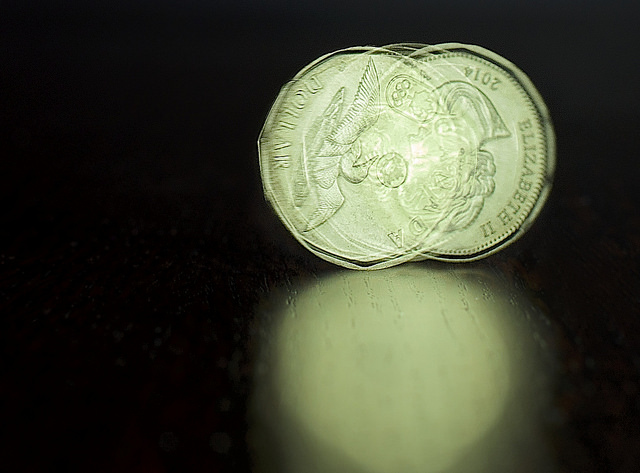Falling world oil prices make strange bedfellows.
Those who, more than two years ago, loudly condemned then newly selected NDP leader Tom Mulcair’s analysis that Canada suffered from “Dutch disease” now happily embrace the idea.
Among them is Finance Minister Joe Oliver.
He has tried to calm folks worried about a dropping dollar and sinking equity markets — both linked to the current drop in fossil fuel prices — by pointing out that the manufacturing sector, mostly in central Canada, should profit from the current turmoil.
Financial planners and fund managers throughout Canada are probably telling their clients the same thing.
Some commodity stocks are in for a rough ride, they’re almost certainly saying, but businesses that deal in finished products, whether at the production, wholesale or retail level, should be good buys right now.
High currency beggars high value-added exports
Mulcair, you will remember, said, famously, that high oil prices had driven up the value of the Canadian dollar, making exports of our manufactured goods too expensive.
The oil producing provinces’ good fortune, the NDP leader said, was the manufacturing producing provinces’ misfortune.
The Netherlands suffered similarly in the 1970s and 1980s after the discovery of North Sea oil beneath its coastal waters. Hence the term “Dutch disease.”
The term describes an economy distorted by a natural resource boom which drives up the currency. That high currency rewards those who export largely unprocessed, high cost resources, while it punishes those who produce high value-added goods and services for the world market.
When Mulcair used the term he was excoriated for disloyalty to Canada’s patriotic and “ethical” fossil fuels industry. On CBC’s The National, Rex Murphy devoted two consecutive commentaries to polysyllabic torrents of obloquy directed at the new leader of Her Majesty’s Loyal Opposition.
Now, it seems, Mulcair had it right all along.
An over-valued loonie, all now heartily agree, does indeed harm Canadian exports of furniture, software, building materials, car parts, dishwashers and sundry other products. It also severely hobbles the Canadian tourism industry.
Many of those who once fulminated that the NDP leader’s Dutch disease comment revealed him to be some kind of crackpot theorist or unreconstructed ideologue have now decided that he was right all along.
Mulcair, it seems, was not, in truth, trying to pit central Canada against the west, any more than Oliver is today with his calming and reassuring explanations of the upside of oil’s downward slide.
New facts require creative new economic policies
However, the hard truth is that if the Canadian dollar continues to stay where it is the boost to manufacturing and other value-added exports will take quite a while.
A legitimate case can be made that the federal government’s single-minded focus on non-renewable (and highly polluting) energy exports has so distorted economic incentives in this country that it will be some time before the economy adjusts to new conditions.
Still, Canada has lots of assets, aside from what it can take out of the ground, especially the asset of smart, creative and well-educated people.
It also has significant accumulated capital, both in private and public hands, to finance the research, development and marketing needed to boost the non-petroleum related economy — and that includes the sustainable and renewable energy sector.
The task for politicians, now, is to craft policies that harness Canada’s more enduring assets. Oil and gas are like economic drugs. They create a kind of euphoria that is highly addictive.
The Canadian economy now needs a good withdrawal program, and a plan to foster investment in more enduring and sustainable forms of economic activity.
Coming up with policies that respond to that challenge will not be an exercise in bumper sticker slogans.
Are our politicians up to the challenge?
Photo: flickr/Jamie McCaffrey



